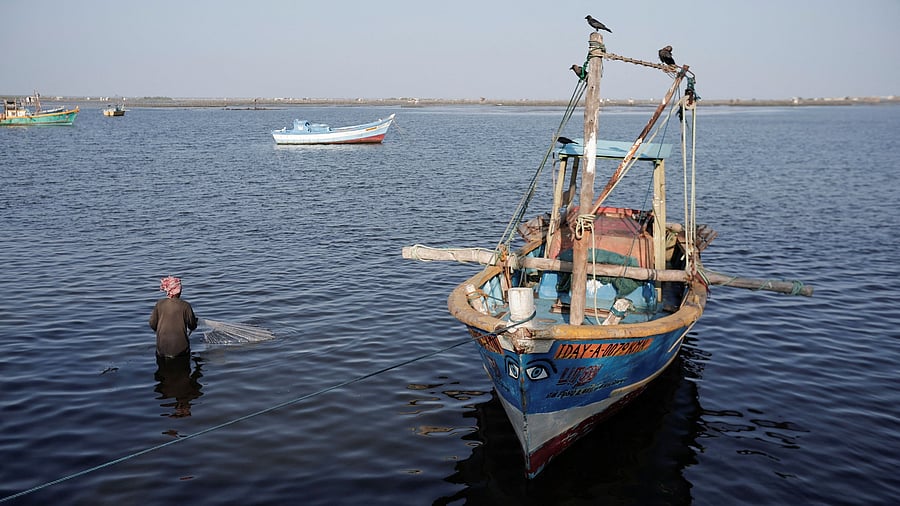
Representative image of the Indian Ocean.
Credit: Reuters File Photo
New Delhi: Rising sea surface temperature, increased frequency of extreme weather events and mounting plastic contamination are the three big challenges for the Indian Ocean impacting its health, Indian marine scientists have found ahead of the third UN Conference on Ocean.
A staggering amount of plastic debris is increasingly reaching oceans, escalating danger to coastal ecosystems and to the livelihood of small-scale fishers, the scientists found as a part of a global marine survey.
Union Science and Technology Minister Jitendra Singh on Saturday left for France leading a high-level delegation that will participate at the international meet, where some of these challenges will be deliberated along with discussions on the implementation of the High Seas Treaty that New Delhi signed last year. The five day conference begins on June 9 (Monday).
“On an average 5-10 per cent of the catch that local fishermen in Kerala and Karnataka get after one hour of fishing is plastic waste,” S Sabu, associate professor at Cochin University of Science and Technology told DH.
In the absence of a proper collection and disposal mechanism, the fishermen throw the plastic back into water where a prolonged exposure to salt water and sunlight disintegrates the plastic, which enters into fish as microplastic. “When we eat those fish, the plastic comes back to us,” he said.
Sabu and a couple of other Indian researchers were part of the global survey carried out by the Marine Stewardship Council on the threats the oceans face.
Indian scientists flagged concerns on rising sea surface temperature and higher frequency of extreme weather events including cyclones, noting that such climatic changes were disrupting the marine food web and thereby coastal livelihood.
“Sardines were earlier seen only near the south western coast, but they have moved to northern areas like coasts of Maharashtra and Gujarat because of the rising temperature,” said Sunil Mohamed, chair of the Sustainable Seafood Network of India and former principal scientist at the ICAR-Central Marine Fisheries Research Institute, Kochi.
Mohamed said the reproductive capacity of threadfin bream – a fish variety – was adversely affected with rising temperature.
“Not only the sardines and mackerels moved to the coasts of Gujarat and Odisha, they have also migrated depth-wise. Earlier the fishermen could see the schools of fish closer to the sea surface, but they have gone down to the mid-region,” Sabu said.
Indian weather scientists have earlier shown how the Indian Ocean is warming at a rapid pace and how marine heatwaves have become common nowadays.
These issues will figure prominently at the third edition of the UN Ocean Conference — co-hosted by France and Costa Rica — that will focus on restoring marine ecosystems, reducing marine pollution, promoting ocean-based scientific cooperation, and mobilising resources.
But India, sources said, would not be in a hurry to ratify the High Seas Treaty, a global agreement for the protection and sustainable use of marine biological diversity in international waters despite a push from France, with New Delhi examining the treaty in the backdrop of Indian laws meant to protect the ocean.
